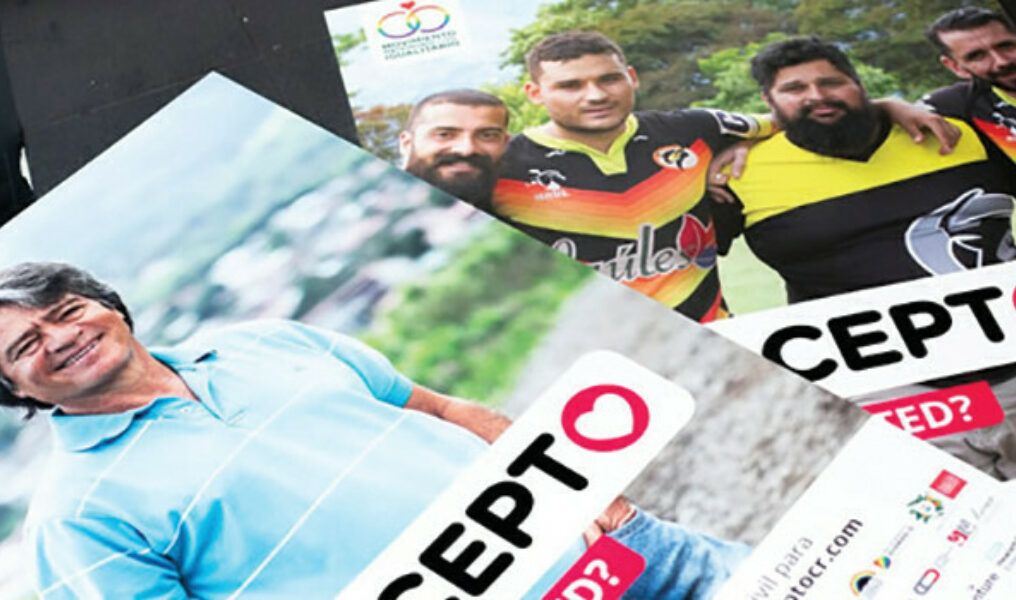More than 30 groups have joined a campaign designed to increase support for marriage rights for same-sex couples in Costa Rica.
Sí, Acepto ("Yes I accept" in Spanish) formally launched in August and includes ads that feature LGBTI Costa Ricans' relatives, friends and teammates. The campaign also includes workshops on the issue that will take place across the country.
"This first phase is real stories that talk about (people)'s experience as a dad, as a mom, as an uncle, as a brother, etc., when they realized someone in their family was gay or lesbian," Sí, Acepto Project Manager Gia Miranda told the Washington Blade last month during a WhatsApp interview from Costa Rica.
Miranda added those featured in the ads also talk about how they "now understand" their loved one's sexual orientation or gender identity "doesn't change their love for that person one bit."
Freedom to Marry Global has also provided support to the campaign.
"Advocates in Costa Rica have built a powerful campaign rooted in conversation as the engine of change," Evan Wolfson, founder of Freedom to Marry, told the Blade in a statement. "It's been proven time and time again — in the U.S. and across many countries in Latin America — that when people hear why marriage matters to their gay and lesbian neighbors, as it does to them, and talk about personal stories and shared values, support for the freedom to marry grows."
Costa Rica lawmakers face 2020 marriage deadline
The Inter-American Court of Human Rights, which is based in the Costa Rican capital of San José, in January 2018 issued a landmark ruling that recognized same-sex marriage and transgender rights.
Then-Costa Rican Vice President Ana Helena Chacón announced her government was going to comply with the ruling, which the court announced weeks before the first round of the country's presidential election.
Carlos Alvarado, who publicly supports marriage rights for same-sex couples, was elected president of Costa Rica in April 2018. His opponent in the election's second round, Fabricio Alvarado, made his opposition to the issue a centerpiece of his campaign.
The country's Supreme Court last November gave members of the Costa Rica National Assembly a deadline of May 26, 2020, to extend marriage rights to same-sex couples before the Inter-American Court of Human Rights' decision takes effect.
Opposition to marriage rights for same-sex couples remains high in Costa Rica, even though the country is seen as a champion of human rights in the region.
Costa Rica this month challenged Venezuela's campaign for a seat on the U.N. Human Rights Council. The Washington Post on Thursday reported Venezuelan Foreign Minister Jorge Arreaza said his embattled government "faced a ferocious campaign" after the country won with the support of Cuba and other allies.
Protests against the government of Nicaraguan President Daniel Ortega and his wife, Vice President Rosario Murillo, began in April 2018. Nicaraguan LGBTI rights advocates are among those who have fled to Costa Rica since the protests and the crackdown against them began.
"Costa Rica is a very important pillar for all of us in Central America," Miranda told the Blade, while adding that conservative and anti-LGBTI attitudes persist. "Costa Rica is a pillar for human rights."
Wolfson said he remains confident the campaign will pave the way for same-sex couples to legally marry in the country.
"As Costa Rica prepares to usher in a new era of recognition and respect for all families, the Sí, Acepto campaign will ensure that this landmark marriage victory will unite the country under the shared values of the Costa Rican people," he told the Blade.
This article originally appeared in the Washington Blade and is made available in partnership with the National LGBT Media Association.










